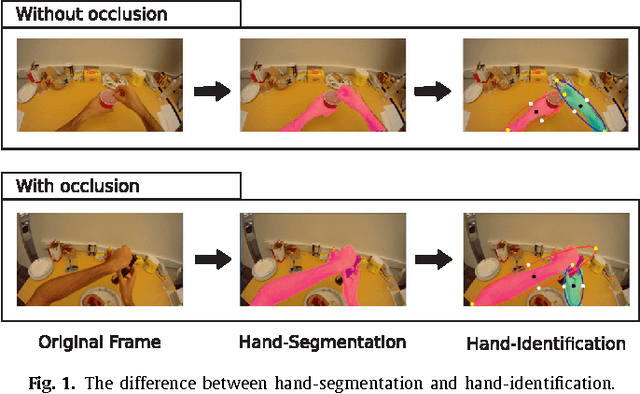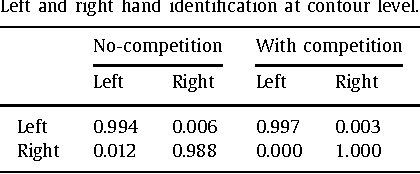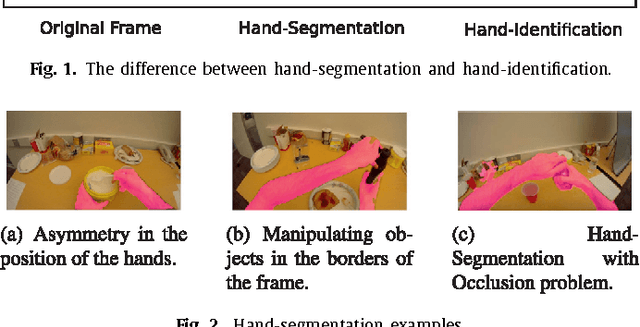Left/Right Hand Segmentation in Egocentric Videos
Paper and Code
Jul 21, 2016



Wearable cameras allow people to record their daily activities from a user-centered (First Person Vision) perspective. Due to their favorable location, wearable cameras frequently capture the hands of the user, and may thus represent a promising user-machine interaction tool for different applications. Existent First Person Vision methods handle hand segmentation as a background-foreground problem, ignoring two important facts: i) hands are not a single "skin-like" moving element, but a pair of interacting cooperative entities, ii) close hand interactions may lead to hand-to-hand occlusions and, as a consequence, create a single hand-like segment. These facts complicate a proper understanding of hand movements and interactions. Our approach extends traditional background-foreground strategies, by including a hand-identification step (left-right) based on a Maxwell distribution of angle and position. Hand-to-hand occlusions are addressed by exploiting temporal superpixels. The experimental results show that, in addition to a reliable left/right hand-segmentation, our approach considerably improves the traditional background-foreground hand-segmentation.
 Add to Chrome
Add to Chrome Add to Firefox
Add to Firefox Add to Edge
Add to Edge